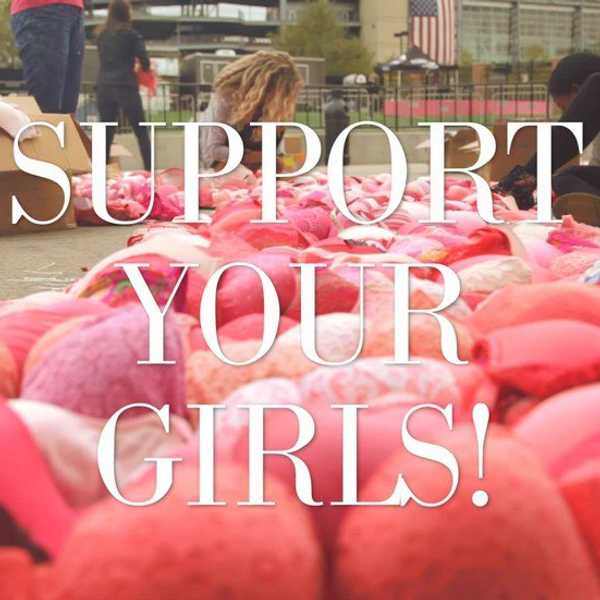Every year at this time, I reflect on the affect breast cancer had on my childhood and the impact it still has on my family today.
My mother was diagnosed with breast cancer when I was ten years old. Thankfully, my mom’s understanding of the disease allowed her to catch it early and undergo surgeries and chemotherapy to try and prevent the cancer from recurring. I am one of the lucky ones, whose mom beat the disease and is still here to go through life with.
According to U.S. Breast Cancer Statistics, one in eight women is diagnosed with breast cancer. It’s a serious disease that affects so many lives and families.
As someone who has experienced how breast cancer affects a woman and her family, I have two major frustrations over the state of breast cancer awareness in this country.
For one, breast cancer is oversexualized in popular culture and does not show proper respect to patients.
I’m tired of so many people making it into something sexual. Breast cancer has the potential to cause such pain and devastation, yet people treat is as something superficial and frivolous. Why is it treated so lightly?
Attempting to create humorous merchandise surrounding breast cancer (i.e. I Heart Boobies, Keep A Breast) is not funny. It cheapens a diagnosis that means so much more than the risk of losing a pair of breasts. Women cope with something so deeply personal and life-threatening, and masking the raw, personal reality of the disease with derogatory terms is just wrong. I have no respect for people who use degrading language toward cancer in an attempt to act funny.
We need a classy, respectful way to inform people of the real dangers associated with this diagnosis. Let’s change people’s perception of the disease by putting the focus back where it belongs: on the women behind the diagnosis.
Disingenuous advertising associated with the disease is also a problem that needs to be addressed.
According to Think Before You Pink, a pinkwasher is “a company or organization that claims to care about breast cancer by promoting a pink ribbon product, but at the same time produces, manufactures and/or sells products that are linked to the disease.”
Some companies exploit the pink ribbon in order to benefit from consumers’ desire to support its cause. The proceeds from these purchases might not fund breast cancer initiatives at all and might even contain harmful chemicals, the website says.
Sure, there are many questionable marketing practices out there. While there are many clever, wise tactics out there, pinkwashing is deceiving and immoral. Why would a company trick someone into thinking they are helping further the cause for breast cancer initiatives when it is just trying to lure you in by using a recognizable, worthwhile cause that people proudly support?
I am grateful for the programs out there that constantly work toward improving treatments and increasing awareness, but I wish that people would use more genuine, thoughtful approaches when referencing such a wide-reaching, personally devastating disease.





















